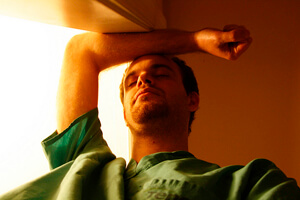You may be working in the healthcare profession, but that doesn’t mean you always take care of your health. But believe us, we aren’t judging, with long work hours and a laundry list of things to do, it’s easy to put your needs last on the list, especially sleep.
According to a 2011 Medscape publication, the average American nurse gets by on 6.8 hours of sleep, but there plenty of nurses who are working 12 hour shifts with even fewer hours of rest.
While you may think cutting your sleep gives you more time to get things done, it’s actually a hazard to your profession. Only 5 percent of the population can function efficiently with less than 7 hours of sleep, so most of the working population is just “working zombies” Dr. James Maas, author of PowerSleep told Yahoo.com
Adults need between 7 and 9 hours of sleep, and when we’re sleep deprived, it has immediate consequences on our health.
Your ability to process information slows down, your memory suffers, your critical thinking drops and your creativity reduces.
As nurses, you know how important it is to remember the details of your different patients, processes and treatments. Making mistakes in these areas can have some serious consequences.
To increase your sleep hours and improve the quality of your sleep, use the following tips.
- Ask for help: A huge obstacle to getting more sleep may be work that needs to get done. If you live with others and you’re struggling to keep up with duties like house maintenance, insist that you need help. Explain how your lack of sleep is impacting your job.
- Get on a sleep schedule: Make it a priority to go to bed at the same time, even on your days off if possible, so your body knows when to shut down. So if need be, let your kids know to defer to another adult after a certain time, because you need your rest. Tell everyone not to call you after a certain hour. Guard your sleep hours like a prized possession.
- Get on a caffeine schedule: Make sure that you stop drinking caffeine six hours before you expect to go to bed. While your caffeine jolt might not last that long, the caffeine can still linger in your body for up to six hours, and delay you from your much needed, precious sleep.
- Step away from the electronics: That means log out of Facebook and all social media, stop checking your emails and watching TV an hour before you intend to go to sleep. The lights from electric devices like cell phones, tablets and laptops emit a blue light, which actually blocks the release of melatonin, the hormone that regulates sleep.
- Make sure your sleep space is sleep-ready: The room should be dark and cool. The ideal sleep temperature is said to fall between 65 – 67 degrees.
- Power nap: While we would love for you to get 7 or more hours of sleep every single day, we know that for some of you, it’s just not possible. However, Dr. Maas says if you can get away for 10 – 15 minutes to take a power nap, do so. It works wonders for energy and clarity.
LINKS:
http://www.medscape.org/viewarticle/481189https://www.yahoo.com/beauty/help-i-cant-sleep-100748280288.html 



